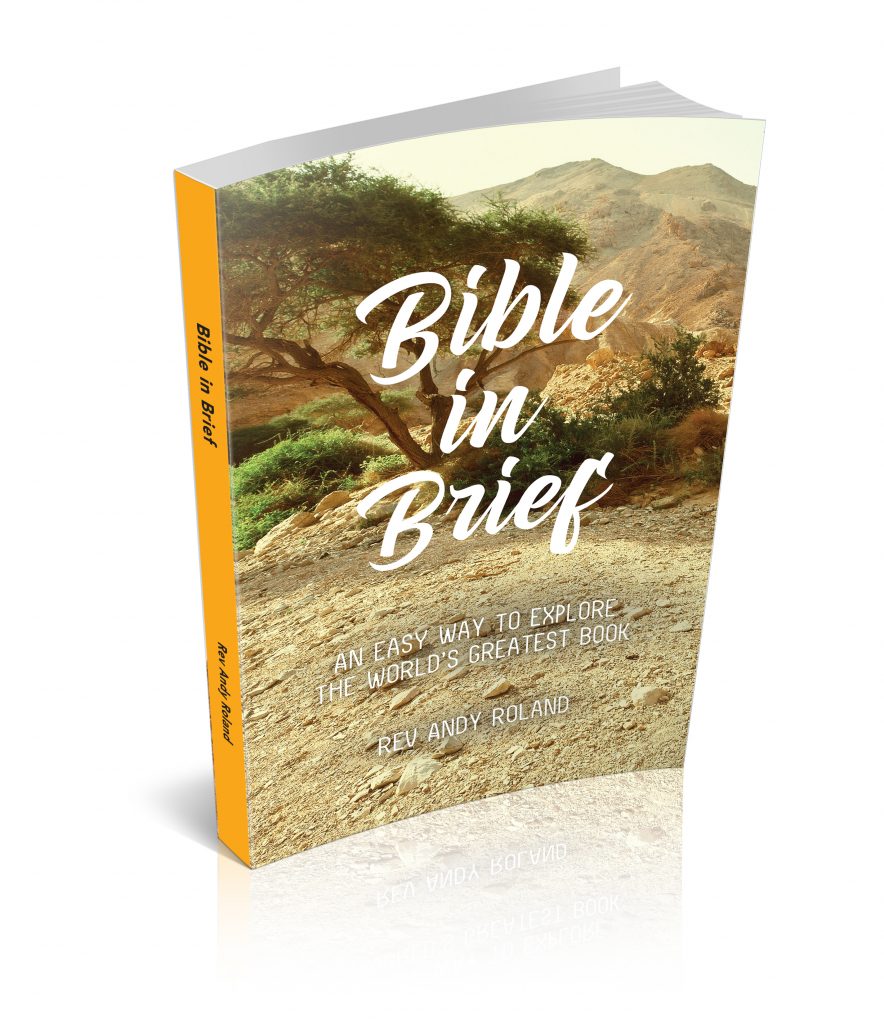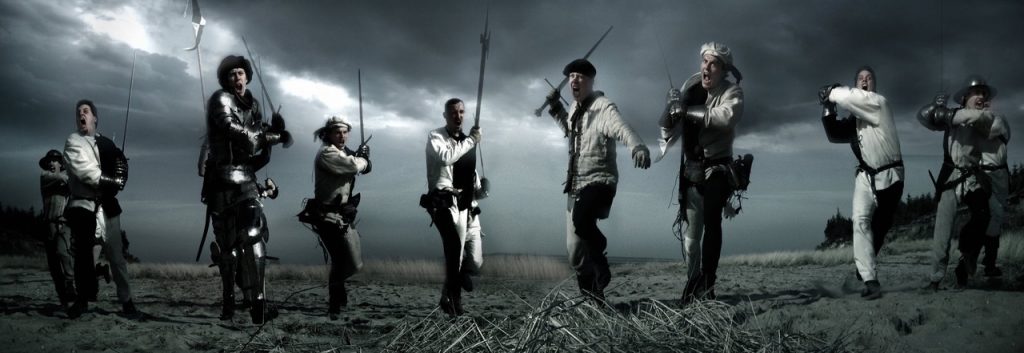TOO LONG,
TOO CONFUSING,
TOO VIOLENT ?
INTRODUCTION
“I don’t read the Bible because it is too long and too complicated.” That’s what I put on the back cover of my first book, ‘Bible in Brief’. I wrote the book explicitly to help people who felt like that. I love the Bible. It is dramatic, challenging and full of the most amazing history. But it is also too long, too confusing and too violent. So what can we do about it?
TOO LONG

Stephen Langton, 1150-1228, was Archbishop of Canterbury. He helped create Magna Carta in 1215. He also divided the Bible into the chapters we have today, without which it would be unreadable.
There are 1,178 chapters in the most Bibles. Roman Catholic Bibles include Jewish books written in Greek known at the Apocrypha which adds a further 213 chapters. So if you were to read a chapter a day, it would take you three years and eighty two days, or, if you are in communion with Pope Francis, a further seven months. That’s a lot!
When I was a newly committed Christian at university I wanted to get to know the Bible better. And I did find help. A little book called ‘Seeing the Bible Whole’ by Stephen Neil was just what I needed. It gave an overview of the Bible in just four months, two months on the Old Testament, two months on the New. It was manageable, enlightening and it gave me an overview of the Bible so I could place various books in context.
However, this excellent little book has been out of print for years. When I retired I wanted to give people a way to read the Bible in a manageable way. This worked out to be a six-month programme, with each month, and indeed each week, having a separate topic as follows:

Month 1 Creation to Commandments (Genesis and Exodus)
Month 2 History of Israel and Judah (1 Samuel to 2 Kings)
Month 3 The Prophets (Isaiah to Malachi)
Month 4 Law, Psalms, Wisdom (Leviticus, Psalms, Proverbs, Job etc.)
Month 5 Jesus (Luke, Mark, Matthew, John)
Month 6 Apostles and their Letters (Acts, Romans, 1 Corinthians etc.)
There are three point about this scheme:
1 You don’t have to start at the beginning and slog on to the end. You can pick and choose what topic you want to think about in any particular week. For instance, Month 3 Week 2 introduces the prophet Jeremiah.
2 Each day’s reading normally consists of a whole chapter. This is often a longish read, but you do get the full flavour of the book. For me there is no substitute to reading the actual words of the Bible. There is something in almost every passage which can challenge us.
3 To follow this programme you do not have to buy anything, or even have a Bible. The whole programme, including bible passages, is on my website www.bibleinbrief.org under the tab ‘Read and Discuss’. The only restriction is that if you want to upload a comment on a passage, you have to subscribe to my emails. That’s not too bad!
TOO CONFUSING

The Bible can be confusing because it was written by multiple authors, even within the same book, and at different times.
The history books are confusing because there is constant cross-referencing between two lists of kings – the kings of Israel and the kings of Judah, especially as they often have similar names, e.g. In the thirty-seventh year of King Joash of Judah, Jehoash son of Jehoahaz began to reign over Israel in Samaria; he reigned for sixteen years. (2 Kings 13.10)
A further possible confusion is that the books from 1 Samuel to 2 Kings in Protestant Bibles, become 1 Kings – 4 Kings in Catholic ones.
The worst confusion comes in the prophets. Christians often think that the only important bits of the prophets’ writing are those verses which can refer to Jesus. But there are 250 chapters in the prophets. They are not in chronological order, and they mostly address the idolatry and social injustice of the people, proclaiming their coming destruction by the armies of the imperial powers of Assyria and Babylon. If you can’t marry up what the prophets said with when they said it, you are not going to understand what they meant.
This was a problem which I unwittingly solved on 1st January 1979. I had been a committed Christian for a number of years and had focussed largely on the Gospels and Paul’s Letters. I felt that they had grown a bit over-familiar, so on New Years’Day I made a resolution not to read the New Testament for a year. This meant that I was forced back to reading the Bible which Jesus and the first Christians used, the Old Testament.
(Not a good name, it comes out of one reference in Paul’s letters. Jesus called it ‘the Law and the Prophets’. Jews call it the ‘Tanakh’, made up of the first Hebrew letters for Law, Prophets and Writings).
I found concentrating on the Old Testament for a year absolutely fascinating. I was able to cross-reference between the prophets and the kings they addressed and discovered highly dramatic first-person accounts of their confrontations.
The book ‘Bible in Brief’ not only puts the prophets in chronological order, but it puts the dates of people and event all the way through as reference points. There is also a timeline page marrying up the prophets with their respective kings and events. Confusion no longer necessary!
TOO VIOLENT

Homo sapiens is a violent being. From domestic violence to the mass devastation of war, humankind is all too easily triggered by external or internal forces to hit out and destroy their opponents. Just check out the news.
Violence is often described in the Bible; which is how it should be, if it going to speak to the total human condition. But the problem arises where God is seen as the instigator of violence, or at least to be in hearty agreement with it. For example:
Afflicting the people of Egypt with plagues of polluted water, frogs, gnats, flies, death of all livestock, boils, hail, locusts, darkness and death of all eldest sons. Then drowning all Pharaoh’s chariot army in the sea. (Exodus 7-12)
The Lord/Yahweh is a warrior,
The Lord/Yahweh is his name.
Pharaoh’s chariots and his army
he has hurled into the sea.
(Exodus 15.3-4)
When Moses was up the mountain collecting the Lord’s commandments, the Israelites decided to make up their own god in the shape of a golden calf. Moses was very angry when he came back and so was God:
Thus says the Lord, the God of Israel, “Put your sword on your side, each of you! Go back and forth from gate to gate throughout the camp, and each of you kill your brother, your friend, and your neighbour.” (Exodus 32.27)
What about the fate of the people who were living in the land which God had promised to Abraham and his family?
When the Lord your God brings you into the land that you are about to enter and occupy, and he clears away many nations before you — the Hittites, the Girgashites, the Amorites, the Canaanites, the Perizzites, the Hivites, and the Jebusites, seven nations mightier and more numerous than you— and when the Lord your God gives them over to you and you defeat them, then you must utterly destroy them. Make no covenant with them and show them no mercy. (Deuteronomy 7.1-2)
Joshua 10.29-43 details at least five cities whose fate is described here:
Then Joshua went up with all Israel from Eglon to Hebron; they assaulted it, and took it, and struck it with the edge of the sword, and its king and its towns, and every person in it; he left no one remaining, just as he had done to Eglon, and utterly destroyed it with every person in it. (Joshua 10.36-37)
When Saul/Sha’ul was made the first king of Israel, the Lord/Yahweh gave him a special task:
“Go and attack Amalek, and utterly destroy all that they have; do not spare them, but kill both man and woman, child and infant, ox and sheep, camel and donkey.” (1 Samuel 15.3)
A couple of centuries laterIsraelites still though that killing people for religious reasons was a good idea. I Kings 18 tells the famous story of the contest between Elijah and the 450 prophets of Baal at Mount Carmel. We hear about the Lord answered Elijah’s prayer. We hear less of his subsequent action:
Elijah said to them, ‘Seize the prophets of Baal; do not let one of them escape.’ Then they seized them; and Elijah brought them down to the Wadi Kishon, and killed them there. (1 Kings 18.40)
THREE POSSIBLE REACTIONS
THEY WERE PRIMITIVE
It is true that it is the early history of Israel that shows a God who commands violence and killing. After the exile of the Jews to Babylon attitudes changed and there are implicit criticisms of the earlier violence.
Commenting a century after the bloody religious revolution at Jezreel carried out by Jesu in 842 BCE, the Lord says to the prophet Hosea, ‘Name (your son) Jezreel; for in a little while I will punish the house of Jehu for the blood of Jezreel, and I will put an end to the kingdom of the house of Israel.’ (Hosea 1.4).
A story at the end of Judges seems to cast doubts the rightness of genocide: The Danites came to Laish, to a people quiet and unsuspecting, put them to the sword, and burned down the city. There was no deliverer, because it was far from Sidon and they had no dealings with Aram. The Danites rebuilt the city, and lived in it. (Judges 18.27-28)
The Book of Jonah proclaims that even the hated Assyrians can repent and find God’s mercy.
Above all, Jesus advocated an ethic of non-violence, announcing that God had the same care for everyone. The Most High …is kind to the ungrateful and the wicked. Be merciful, just as your Father is merciful. (Luke 6.35-36)
Within the Bible there is a clear movement from seeing God as having a primary loyalty to one’s own tribe to an expansive vision of God’s care for the whole world. To equate the Holy and Eternal One, who is above and through and in all things (Ephesians 4.6) , with a nationalistic patriotic God is simply to make a category mistake.
But the Bible is our community history, our family history. If we follow Jesus, we follow the one who was brought up on the whole Biblical story. Perhaps our attitude to the violent parts of the Bible can be not just “how dreadful” but maybe “there but for the grace of God go I”.
WE ARE ALL VIOLENT

Jane Goodall spent over 15 years from 1960 studying chimpanzees in the Gombe forest in Tanzania. She found them amazingly caring, compassionate and loving. Then in the 1970s some horrible aggression started, including a four-year war against a breakaway group which only ended when all of the group had been slaughtered. Jane commented in her book ‘Reason for Hope’: ‘Here we are, the human ape, half-sinner, half-saint, with two opposing tendencies inherited form our ancient past pulling us now towards violence, now towards compassion and love.’ (p. 143)
The violent parts of the Bible can speak to us, if we recognise that there is a capacity for aggression hardwired into our deepest nature, as well as a capacity for love and self-sacrifice. While we feel relatively peaceful, it seems inconceivable that we could have such atavistic reactions – until something happens to spark them off. We are all recipients of original sin – turning away from God and our fellows, just as we are recipients of original virtue – opening ourselves to the creative spirit of God and to our fellow men and women.
GOD IN OUR IMAGE?
The German playwright Frank Wedekind famously said, “God made man in his own image, and man returned the favour.”
In fact, the idea is an obvious one. Every thought we have about God comes through our amazing but limited brains. If we get caught up in aggression, then we will make sense of God in those terms too. The early history of Israel is a story of sustained and often successful aggression, so they related to God from within that situation. That is why we can find examples of fidelity, courage, even chivalry, as well as many things of which we want to say, “not on my watch”.
In my view much of modern theology is motivated by a need to be socially relevant, and so see God in terms of whatever struggles we think the church should be engaged in. There is a subtle but important distinction between what we believe to be the will of God for us today, and what we believe to be the nature of God. Humility is really important, especially when we know we are right!

